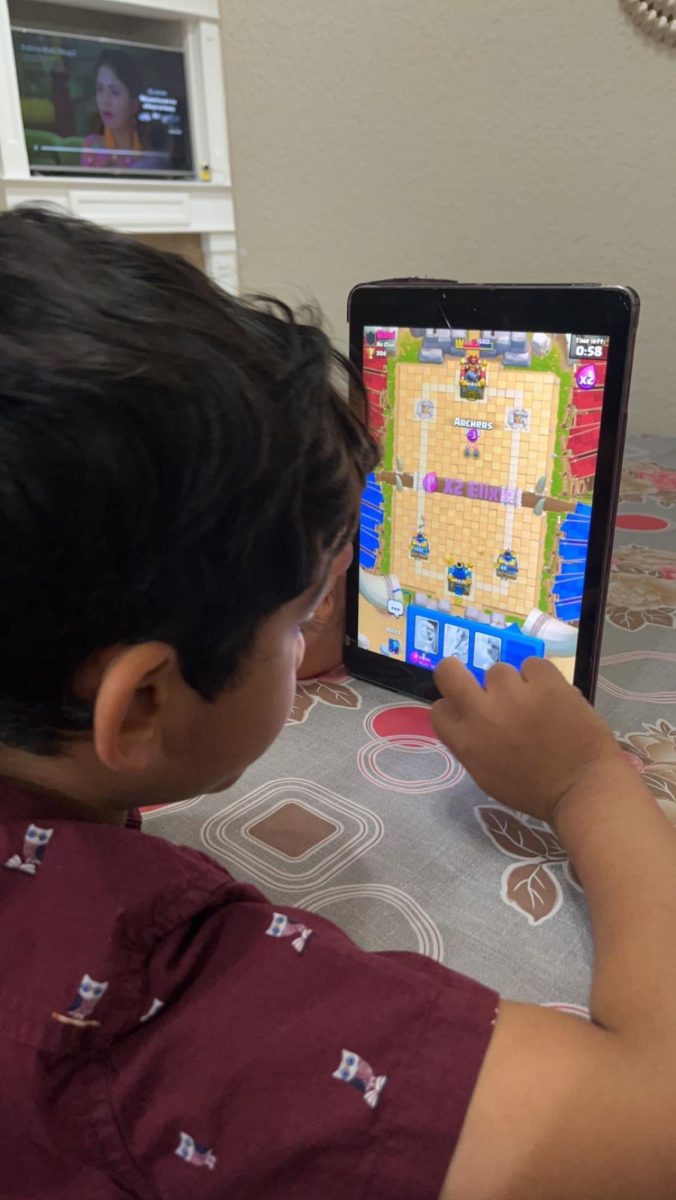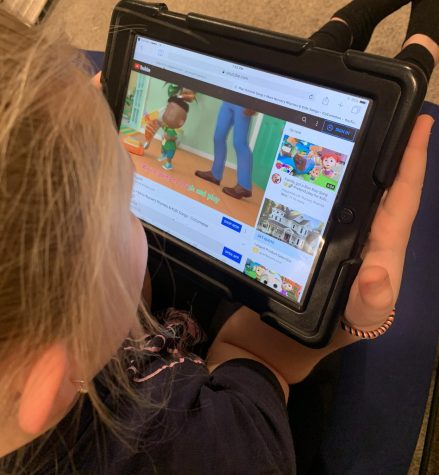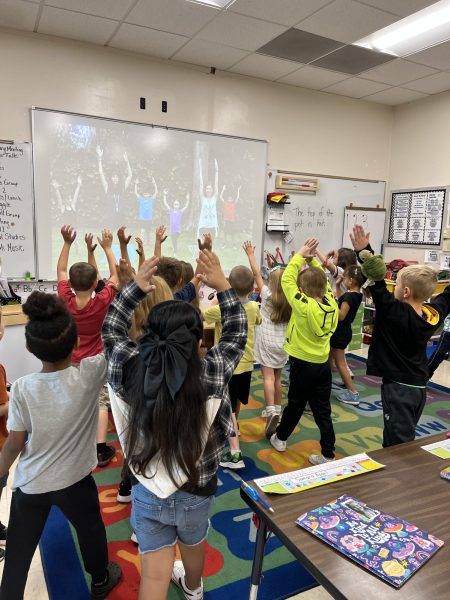In recent years, the epidemic of what the media has dubbed as “iPad kids” has been on the rise. In the media, they are often made fun of for their addiction to screens at such a young age, but the lasting effects of screen addiction on a child’s education are astounding.
Excessive screen time has many negative and lasting effects on the social development of young children, and those effects are starting to emerge in the academic development of children. The new generation of children who are exposed to shocking amounts of screen time every day is proving to be behind the generations before them academically, and many have reason to believe screens are the root of the issue.
By the age of 5, 90% of a child’s brain is developed, meaning the way children are taught at a young age is crucial to their development. From ages 3 to 5, many kids focus on the basics of learning: reading, speaking and writing. Failing to gain these fundamental skills at the right time can negatively affect a child for the rest of their life, causing them to fall behind academically.
Pleasant Valley elementary school teacher who will be referred to as Sue Anderson for purposes of anonymity has taught for over 15 years. She reflected on the changes she is beginning to see in her students due to the increased screen time. “First graders need to know a certain set of skills like reading, writing basic sentences and basic math so that in later grades they can build on and develop those skills,” she stated.
Children becoming dependent on their iPads can decrease the words and sentences toddlers use, resulting in delayed language and reading development. Not knowing the basics of speaking and reading as a child can follow children through their whole academic lives .
“Everyone learns at a different pace, but I have never seen children collectively learning at this rate, they are so much harder to regulate and hold their attention long enough to teach them the basics that used to be taught easily,” Anderson said.
Many schools are attempting to incorporate technology and screen time into their early education curriculums, hoping to use them as tools to further children’s education while also making it fun and interactive. This is useful in some cases, but at the same time adds to the already high amount of screen time children experience at home.
With their bright colors and endless number of different games and features, screens produce excessive amounts of dopamine to young children. This desensitizes children’s reward systems, making children almost feel an addiction to screens.
Junior Anna Phipps has witnessed the screen addiction children have and expressed her opinions regarding the use of screens in education. “When I am in public and see a child, more often than not they are watching something on an iPad or phone to keep them calm,” Phipps conveyed.
Excessive screen time limits children’s ability to observe and engage with the world around them because they remain fixated on their devices. They no longer seek toys or other people for entertainment because everything they want can be found on the internet.
“I get why teachers would use technology because it often does seem like the only way to hold children’s attention, but also school should not be a place that feeds into their addictions, they could be taught organically instead of incorporating more screen time additional to the many hours they already have at home,” Phipps explained.
This becomes problematic because so much of a child’s education comes from observing and imitating the world around them, and young children’s disconnection from the real world is resulting in a lack of effective learning.
“Kids typing out their words or watching videos on letters isn’t going to help them,” continued Anderson. “Yes, they can see how the actions are done but they need to be able to write out the letters, hold the pencil in their hands and feel it against the paper or else they will simply be seeing the motions and shapes, not truly comprehending and internalizing.”
No matter how widely it is implemented, no amount of artificial learning from games and iPads can imitate the skills that can be learned in real life through interaction and experience. Excessive screen use in toddlers is beginning to pose a new threat to society: a whole generation falling behind.

















